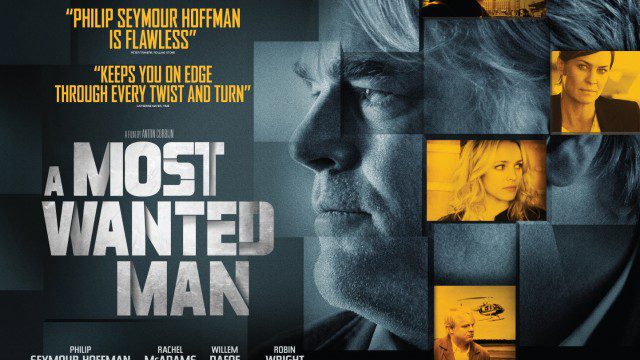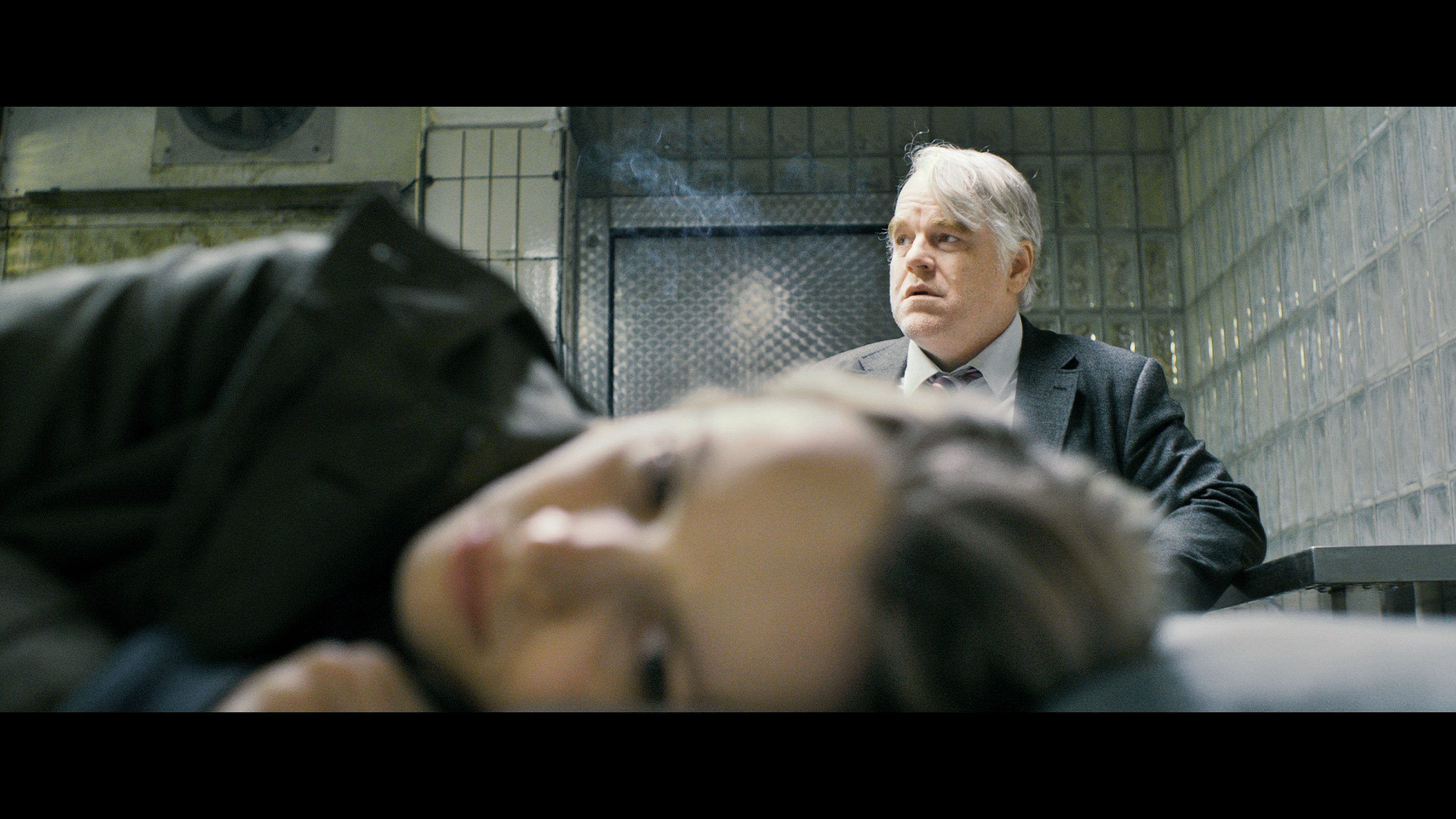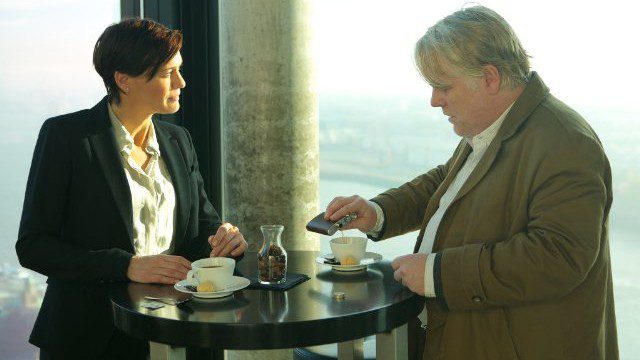When this year in film is looked back on surely the most significant thing we’ll remember about it-more than any specific movie or new trend-is the enormous loss left by the passing of Philip Seymour Hoffman in February. Simply put, there was no more exciting or versatile American actor, and no performer capable of such a depth of feeling and empathy. He could also be marvelous fun to watch, donning different voices and personas with light-hearted ease. Few could have pulled off as adeptly as he did the sad sack loser roles he often took in movies like Happiness or Love Liza—and then turn around and convincingly play Truman Capote, the hypocritical pastor in Cold Mountain, or the charismatic cult leader with a nasty temper in The Master. That’s what makes A Most Wanted Man, the third film from photographer turned director Anton Corbijn, so noteworthy. It’s the last new starring role we’ll ever get to see Hoffman in. For a simultaneously sad and exciting two hours or so, he’s alive again—and rather brilliant.
Hoffman plays Günter Bachmann, a German agent in Hamburg, the frosty port city where we’re reminded that Muhammad Atta planned the 9/11 attacks. Those are the kind of oversights that modern nation-states simply can’t afford to make anymore. That’s lost least of all on Günter, who we learn made a (vaguely alluded to) serious lapse in judgment on assignment in Beirut that still haunts him. When a suspicious looking Chechen named Issa Karpov shows up wandering around the city after fleeing torture in Russia (played by Grigoriy Dobrygin, he looks unkempt like an eco-terrorist), the intelligence community wants him nabbed immediately. But he manages to hold off his superiors while he tracks the inheritance funds through a left-wing lawyer (Rachel McAdams) and a banker named Tommy Brue whose father knew Karpov’s (played by Willem Dafoe). If anything terrible happens in the meantime, the blood will be on his hands.
In act of principle and disassociation from his late murderous father, the young man chooses not to accept the unclean money. He will instead forward it to Dr. Faisal Abdullah, a prominent Muslim academic known for his philanthropy and disavowal of religious extremism. On his behalf he will select his favorite charities for the all those Euros to be dispersed to. The thing is that whenever he moves money through Muslim organizations, some of it always goes missing—and that’s what Günter, twisting Bru’s arms behind the scenes is counting on. Played by the great Iranian actor Homayoun Ershadi, there is a real sense of unresolved mystery and contradiction to this seemingly Western and peace-oriented man. Even the way he denounces jihad as “violence against the innocents” in a university lecture about injustices against Muslims from Palestine to Afghanistan seems to suggest that he believes there are some legitimate targets for retribution.
Gunter pores over all the details, down to the most miniscule idiosyncrasies trying to build his case. Why did ten percent of a shipping order of grain vanish? Why would somebody make a four-hour stop over in Cyprus in route from Dubai to Frankfurt? Hoffman is quietly sensational throughout. It’s a terrifically unsexy and unflashy role as a weary poorly-dressed drunk obsessing over all these disparate details and very much aware of the compromises being made. He delivers his lines in a terse, somber German accent. He’s mostly low-key, but unlike some of the drizzliest parts he sometimes got especially later in his career, he has room to infuse it brilliantly with a sly-even mischievous-wit.
Based on a 2008 book by John le Carre, A Most Wanted Man argues that intelligence gathering in the post-9/11 era is a competition between power-hungry careerists–most of which would sooner fire the proverbial gun and be wrong then more gradually build a case and risk being too late. As in any job, the goal is to produce results and questions can always be asked later. However, when you’ve convinced yourself that the most important objective of keeping the public safe overrides peskier concerns about constitutional rights and legal freedoms, there is not much that you can’t justify. The movie builds to a shattering and unsettling climax that makes clear just how much the most decisive and illiberal types wield power behind the scenes. The raising of all these points and the impact of the conclusion is-I think-powerful, never lecturing or preachy.
Corbihn, who previously directed the stunning Joy Division pic Control and The American, has made a movie that’s smart and dense, especially for a summer release. Written for the screen by Andrew Bovell, it’s less confusing than you might expect, though quite detailed and dense. Corbijn, not surprisingly for someone who has spent most of his career photographing rock stars and making music videos, has an impeccable eye for style and this chilly pic is exceptionally good looking. What it’s not is consistently gripping. It never flounders in any embarrassingly obvious ways—it’s simply that what at first plays as brooding eventually becomes plodding and somewhat dull. The emotional notes between the young lawyer and the tortured refugee get a little heavy-handed too. You watch it wondering exactly when this thriller is going to become more urgent and, you know, thrill. For all the intelligence and competence evident, A Most Wanted Man is not necessarily one of the best movies the late Philip Seymour Hoffman starred in. This is, however, easily one of his finest lead roles. He alone makes it an essential viewing. It’s a staggering reminder of everything we lost.



